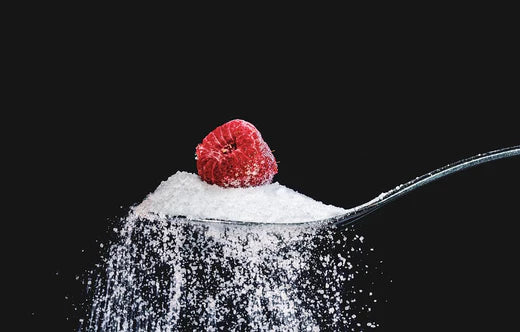There are a number of sugar alternatives: You can sweeten dishes and especially desserts from coconut blossom sugar to rice syrup to honey or erythritol. However, there are a few things you should know about substitutes.
When talking about sugar substitutes, a distinction is made between sweeteners, sugar substitutes and natural alternatives.
Sweeteners such as stevia are found in many light products due to their low calorie content and are many times sweeter than normal sugar. They can be produced synthetically, but also occur naturally.
Sugar substitutes such as the sugar alcohols xylitol and erythritol are obtained from fruit, vegetables or wood and have a sweetening power similar to table sugar. They often contain fewer calories and affect our blood sugar levels less than sugar.
The natural alternatives include above all syrups, thick juices and honey, but also coconut blossom sugar.
sugar substitutes
Xylitol is also called birch sugar because it is contained in small amounts in birch bark. However, the sugar substitute is found in some vegetables and fruits. In the food industry, xylitol is obtained through a relatively complex process, which makes the sugar substitute a little more expensive.
Xylitol not only has a similar sweetening power to sugar, it also looks confusingly similar to normal sugar. Another plus: Xylitol has 40% fewer calories than table sugar . Because the blood sugar level is not affected so much, this sugar alternative is suitable for diabetics.
But beware! Excessive consumption of xylitol has a laxative effect. Xylitol is even toxic to dogs (and goats).
Erythritol is a Sugar alcohol , produced by fermentation processes. It even occurs naturally in small amounts in fruit, mushrooms and other fermented foods.
Erythritol is a good sugar alternative that tastes a little less sweet and is also very low in calories. The sugar alcohol has a glycemic index of zero, which means that it no effect on our blood sugar and insulin levels has. So perfect for diabetics. People with fructose intolerance can also use erythritol because it contains no fructose. Danger! Excessive consumption of erythritol can have a laxative effect.
sweeteners
Stevia becomes one of the natural sweeteners counted. This is a herb that has a very intense sweetness. A chemical process is used to produce stevia sweetener, which is available as a powder or liquid sweetener. Stevia consists mainly of erythritol, a chemical sugar alcohol. The sweet ingredients or extracts of the stevia plant are added to the erythritol.
An advantage: Stevia has hardly any calories, does not damage our teeth and does not affect our blood sugar, so it is perfect for diabetics.
Important: Stevia must be dosed carefully because the sweetener is a 300 times the sweetening power of normal sugar has.
And which sugar alternative do I use now?
All sugar substitutes have their Advantages and disadvantages. It often depends on your own taste and what you personally want to pay attention to. If you want to save calories, then rely on erythritol, stevia or xylitol. If you have diabetes, you can also replace sugar with erythritol and stevia, because both sweeteners have no effect on blood sugar and insulin levels. If you have a fructose intolerance, you should primarily sweeten with rice syrup, stevia or malt sugar. And if you are looking for a sugar substitute that is as natural as possible, then use honey or coconut blossom sugar!
The general rule: How sugar substitutes work in the long term is largely unexplored. Therefore, you should only consume alternative sweeteners in moderation and not in bulk

